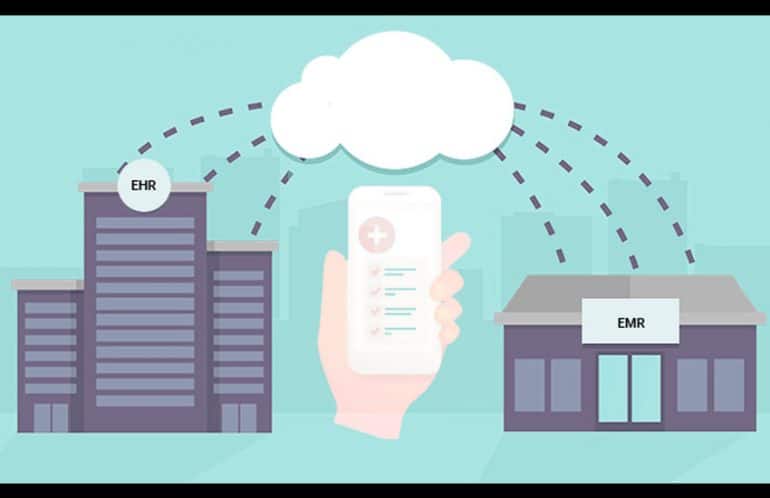Since the advent of technology medical healthcare organizations have started to incline towards getting their systems updated by implementing EHR or EMR.
Electronic health records or electronic medical records have started to become more used in clinics, healthcare practices, and hospitals than before.
You can find more about EHR or EMR at the Clinicast website for better understanding.
Medical healthcare organizations have started to transition their records and documents to digital formats. The paper-based record and documents are still used but their usage is reducing as more clinics and hospitals are opting for electronic health records.
A hospital might think of switching from the old orthodox method of paper-written records to digitally based electronic records but before the switch, it is important to consider both the pros and cons of EHR and EMR systems to know whether it is worthwhile or not.
Let’s have a look at the advantages of EHR first.
Pros of EHR
Electronic health records are designed in such a way that they are best for organizing, storing, and accessing health records whenever needed. Check out some other benefits of EHR as well.
- Efficient and convenient
If a healthcare organization is still dealing with records on physical papers then this means there is a lot of time wasted in sorting and storing the paper records making the whole process lengthy and cumbersome. The old method of recording the patient details takes time and also slows down the efficiency and productivity of the team which can be used somewhere else if the organization has updated its record system to EHR.
It is much easier to find the desired information on the digital records and that too very quickly. In fact, it might take a few minutes and by some clicks and taps, the desired information will be in front of you, unlike the orthodox physical=paper documents where you need to search files after files to get to the desired documents.
- Less storage cost and demand
The physical paper documents take space in the form of folders and files and to accommodate those large records, you need to have space in the form of cabinets and that will be an extra cost to bear.
A similar space can be used for something else if the records are digitally maintained through EHR. This space can be used for storing supplies, equipment, and other business activities.
The files can be stored digitally on a hard drive or on a cloud making it cost-effective as well.
- Easy to organize and sort
Digital records are easily organized and can be accessed instantly whenever required, unlike the physician’s paper documents.
The digital records are easy to access and the records are more legit as compared to the physician’s notes which might not be as reliable as the digital records because of human error involvement.
The digital records are easy to organize as they are stored in a standard format that is easier to access and the information can be accessed whenever needed.
- Easy access for the patient
Another advantage of EHR is that it makes it easy for the patient to access the records instead of requesting the physician and then waiting to receive the documents whenever they are sorted.
The electronic health system provides an online portal for the patient to have direct access to their medical information and history whenever it is needed.
- Security
EHR is more secure than paper records as they are easy to lose. They can be destroyed if any accident occurs and potential theft will leave the medical healthcare system without any medical health records of the patients. Therefore, the digital records are termed safe and secure as all the data is secured in a database that can be accessed by authorized persons only.
Cons of EHR
As mentioned above, like everything else in the world, EHR systems have their own cons which can make any organization go back to its decision of implementing EHR in their system. Have a look.
- Cybersecurity threats
As digital platforms store the records of patients in their system, data breach is becoming more common than before.
Even if an EHR system has placed high-security measures as measures to protect the data, there are still chances of unauthorized access. The system remains vulnerable to hackers who might get access to the data and misuse it. The data can land in the wrong hands and be used for malicious activities. This is one attribute that is connected with EHR no matter how top-notch the security system is.
- Update requirements on a regular basis
The digital records need to be updated at regular intervals. It is important to update the electronic health record system so that the patient’s record is updated before their next due appointment and the pharmacists, lab assistants, physicians, etc. are informed beforehand about any kind of changes in the medical records.
This is very important but it can be very painstaking to update the records more often than required because if they are not updated and the doctor has administered anything not feasible to the patient this may lead to consequences that no one would like to face.
- Technology failure
Any kind of issue with the technology like poor bandwidth of the internet, or power cut off or any other issue might make the medical record inaccessible. This may lead to a delay in the treatment creating a gap that would lead to confusion between the patient and the physician.
Conclusion
Like anything else, EHR or EMR has its sets of advantages and disadvantages. It is up to the physicians to decide whether they want to implement EHR in their system or not. But as the technology is advancing and more and more organizations are opting for EHR, soon this will become a mandatory phenomenon for medical healthcare organizations.

